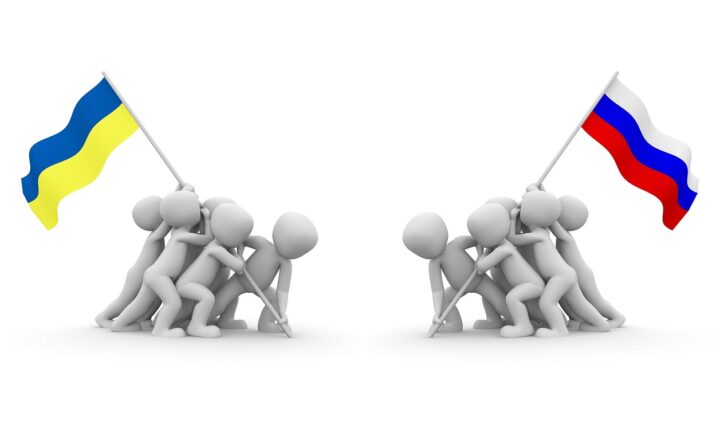Beyond Borders: A Journey Through the Most Intriguing Conflicts in History
November 19, 2024

History is not just a collection of dates and events; it is the tale of humanity’s struggles, aspirations, and the numerous conflicts that have shaped our world. From the ancient battles of empires to the modern skirmishes borne out of territorial and ideological disputes, conflicts define our societal evolution in both visible and invisible ways. This article will take you on a journey through some of the most intriguing conflicts in history that not only changed borders but also the course of civilizations.
1. The Peloponnesian War: A Clash of Greek Titans
The Peloponnesian War (431–404 BC) was a monumental conflict between the city-states of Athens and Sparta, marking the turning point in Ancient Greek history. It began due to the fear and resentment that Sparta and its allies felt towards the growing power of Athens, which demonstrated the impact of imperialism on inter-state relations. The war unfolded in phases, with notable battles like the Sicilian Expedition, which ended catastrophically for Athens.
This conflict revealed much about human nature and governance, as both city-states faced internal strife and shifting allegiances throughout the war. The war ultimately resulted in the downfall of Athenian democracy while Sparta briefly reigned, only to give way to the rise of Thebes—demonstrating that power is transient.
2. The Hundred Years’ War: The Rise of National Identity
Spanning from 1337 to 1453, the Hundred Years’ War between England and France was not just a series of battles, but a colossal conflict that ushered in a sense of national identity and heralded the end of feudalism. Right from the battles of Crécy and Agincourt to Joan of Arc’s heroic stand, each phase of this war transformed societal structures and power dynamics.
The war was characterized by a new kind of warfare that utilized longbow men and the emergence of organized armies, forever changing the nature of combat. The shifting fortunes and the eventual establishment of the French monarchy highlighted the importance of unity and national pride in the face of threats.
3. The American Civil War: A Turning Point for Democracy
The American Civil War (1861–1865) is a profound chapter in history, typified by the struggle between the North and South over slavery, state rights, and economic disparities. This conflict, which began over fundamental social issues, escalated into a war that ultimately paved the way for civil rights advancements in the United States.
With iconic battles such as Gettysburg and Antietam and key figures like Abraham Lincoln and Frederick Douglass, the civil war instigated change not just through military might but moral imperative, culminating in the Emancipation Proclamation and the ongoing fight for equality. The repercussions of this war resonate through American society today, proving that conflicts often bear solutions to long-standing societal issues.
4. World War I: The Great War and Its Aftermath
World War I (1914–1918), often labeled the Great War, was a significant global conflict that disrupted traditional structures, leading to unprecedented changes. It featured advanced weaponry and trench warfare, brought about by the static nature of combat. The war was sparked by the assassination of Archduke Franz Ferdinand and revealed the fragility of empires, as the Austro-Hungarian Empire, Ottoman Empire, and Russian Empire crumbled in its aftermath.
The Treaty of Versailles, which sought to bring peace, imposed harsh reparations and territorial losses that sowed the seeds for future conflicts, notably World War II. This war not only shifted borders but also altered the global order, leading to the rise of new ideologies and movements.
5. The Cold War: Ideological Conflict Without Direct Combat
The Cold War (1947–1991) stands as a remarkable period characterized by geopolitical tension between the United States and the Soviet Union. Unlike previous wars, this conflict was not fought on battlefields but through ideology, propaganda, and proxy wars. The nuclear arms race and the space race encapsulated the technological competition as nations maneuvered for supremacy.
Significant moments like the Cuban Missile Crisis and the fall of the Berlin Wall fundamentally reshaped international relations and spurred collective security frameworks like NATO. Moreover, the Cold War emphasized that ideological struggles often shape the global landscape more profoundly than direct military confrontations.
6. Conclusion: Learning from History’s Conflicts
Conflicts have been an integral part of human existence, and tales from history remind us of the complexities of governance, human emotions, economic motivations, and the quest for power. As we traverse through these historical intricacies, it’s crucial to reflect on the lessons they impart: the importance of diplomacy, the adverse effects of power struggles, and the enduring human spirit’s quest for peace and stability.
Understanding historical conflicts not only enriches our perspective but also reminds us of the fragility of peace and the need for continuous dialogue and understanding as we strive for a better future across borders.
Through this journey, may we learn to appreciate the diverse tapestry of history, recognizing that every conflict has played a role in shaping our global narrative.







